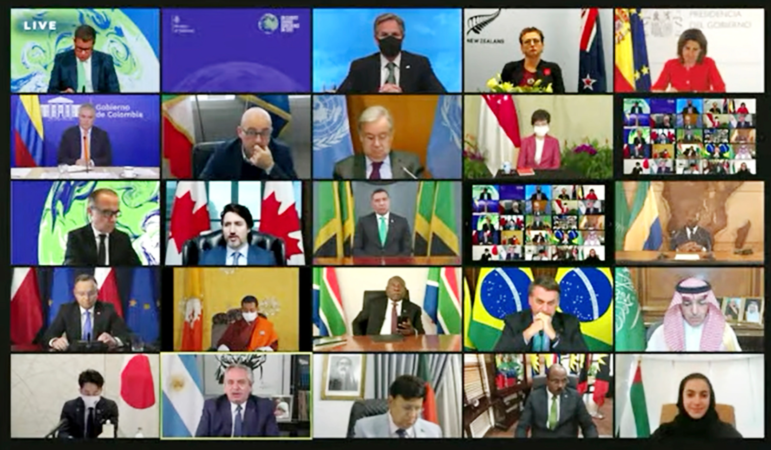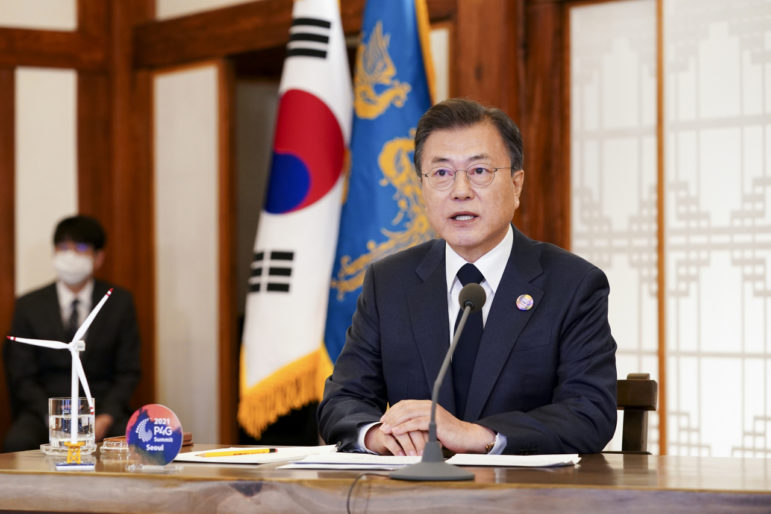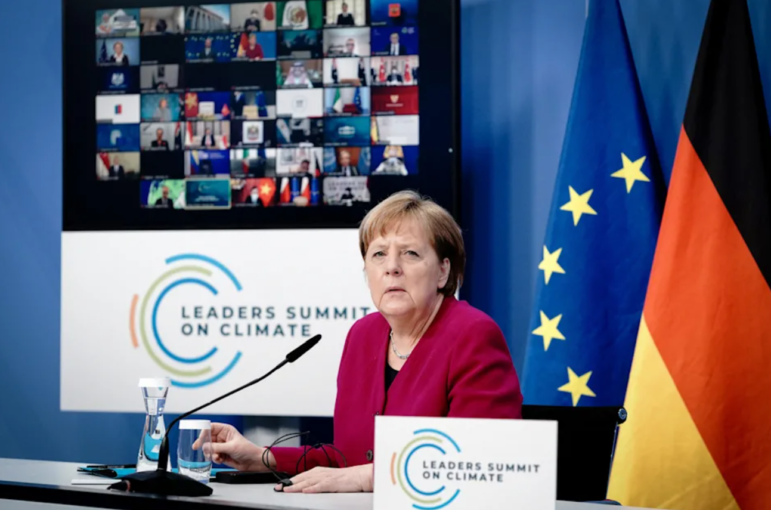
This month, President Biden convened 40 world leaders for a historic virtual Leaders Summit on Climate with the goal of rallying to tackle the climate crisis and meet the demands of science. I was honored to attend on behalf of Fresh Energy and tuned in for the full two days.
At Fresh Energy, we’re pleased to see strong federal leadership on climate that includes clean energy and energy-related economic development policies as additional levers.

President Biden’s goal was to lay out a compelling case to the world and the American people that the United States is reengaged and has a credible and ambitious plan to confront the climate emergency. The Summit was only the starting point of that public effort—not the destination. After four years of the former Administration’s reductive policies, the Summit was about urgently restoring American credibility on the global stage and refocusing our domestic action and diplomacy in order to encourage climate action from countries around the world.
As I watched the two-day event, the United States, together with other nations, announced ambitious new climate targets. These new climate goals ensure that nations accounting for half of the world’s economy remain committed to the necessary emissions reductions that will keep the goal of limiting global warming to 1.5 degrees Celsius within reach. Many leaders stressed how urgent it is for other major economies to strengthen their climate ambition as we approach the 2021 United Nations Climate Change Conference (COP26) occurring this fall in Glasgow, Scotland.
President Biden opened the Summit by laying out the United States’ climate plan, announcing a new Paris Agreement target that would slash U.S. greenhouse gas emissions (GHGs) 50 to 52 percent below 2005 levels by 2030. The Paris Agreement is a legally binding international treaty on climate change that was adopted by 196 parties at COP21, the 2015 UN Climate Change Conference. The Agreement is named for the city in which it was adopted: Paris, France. As part of the 2015 Paris Agreement, the U.S. had committed to reduce emissions by 26 to 28 percent below 2005 levels by 2025. However, in November 2020 under the former Administration, the U.S. formally withdrew from the Agreement.

At the Summit, world leaders pledged even deeper, bolder targets. The United Kingdom will make 78 percent reductions in its emissions by 2035. Germany pledged to, by 2030, reduce emissions by at least 55 percent from 2019 levels. President Moon Jae-In of the Republic of Korea, a leading financier to coal overseas, pledged to end Korea’s international coal financing. Japan, the European Union, and Canada also made ambitious new pledges.
Numerous speakers at the event named the current period as the “decisive decade” for needed climate action—and rightfully so. This decisive action and resolute ambition on climate from the Biden Administration matches the urgency called for by the scientific community. In that community, few scientists are as revered as Dr. Michael Mann, distinguished professor of atmospheric science at Pennsylvania State University. According to Dr. Mann, the United States’ goal to curb GHG emissions 50 percent by 2030 “…is precisely what is needed…an actionable goal within the next decade that puts us on the path toward limiting warming below a catastrophic 1.5 degrees Celsius globally.”
However, Special Presidential Envoy John Kerry, who chaired the diplomatic visits, noted that many other attending leaders—including China, Russia, India, Australia, Brazil, and South Africa—were silent at the Summit about strengthened ambitious targets for 2030.

Most economies were silent as well about meeting the Paris Agreement’s mitigation and adaptation goals, which encourage countries with more financial resources to provide monetary support to countries with less financial resources. Wealthy nations pledged that by 2020 they would collectively devote $100 billion USD annually to climate finance. As President Biden stated on the first day of the Summit: “Meeting the challenge will require financing at an unprecedented” scale. Most developed nations haven’t mobilized that money so far; in particular, the United States is “woefully behind” on meeting its pledge. Angela Merkel, Chancellor of Germany, called for the collective $100 billion annually, and Bangladesh Prime Minister Sheikh Hasina renewed her call for rich countries to deliver on their collective $100 billion annual target.
President Biden closed out the unprecedented Summit by underscoring that the progress we need does not rest on promises, but rather clear climate action. In the President’s words: “We can do this. We must do this. And we will do this.”
Now, economies around the world must put in place the requisite bold, ambitious plans and policies by the time COP26 is held in November. This will be my sixth time attending the United Nations conference, and I’m honored to represent Fresh Energy and Minnesota at this global event. Stay tuned for news and updates.
